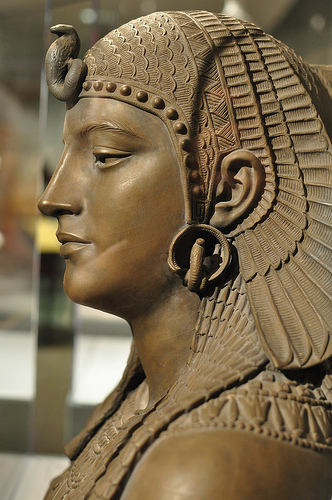
 )
)How would I have thought about my fellow humans had I lived 50, 100, 150 years ago? That question has been nagging me for a while now. As a biologist, my current thoughts on topics like race are influenced by my understanding of the science. I am also aware that various scientists have come to a range of conclusions on those questions over the years. With hindsight, we can see how some of those conclusions were based on flawed studies, biased reasoning, or incomplete or nonexistent data. But would I have been able to identify those issues at the time?
Before we go too far down the rabbit hole of hypotheticals and counterfactuals, perhaps I should put my cards on the table. Humans evolved as a single population, likely around the Horn of Africa. Having subsequently spread around the globe, we could no longer completely intermingle because of distance and geographical barriers. At the same time, groups have interacted locally to maintain a fairly continuous set of connections. As a result, at the extremes of the global scale one can identify distinct characteristics between, say, northern Europeans and southeast Asians, but there’s nowhere to draw a hard dividing line where one population ends and the other begins. This has apparently always been true, and will not be any less true as globalization brings more local groups into contact with each other. Those conclusions are based on a variety of biological and archaeological data. And to the extent that there is any ambiguity or freedom of interpretation, I prefer to lean towards the side of concluding that all of us are more fundamentally alike than we are different. In other words, as far as I can tell you are all the family I was born with, and to the extent it is up to me you are all also the family I choose.
As G. Blair Nelson reminds us in “‘Men before Adam!’: American Debates over the Unity and Antiquity of Humanity”, the latest chapter in our book club book When Science and Christianity Meet, not everyone has come to the same conclusion. Sometimes the reasons were considered scientific, or at least justified in scientific terms. Theology did not always lead folks to the same answers either. Hence my musings on what I would have thought had I lived in another era. Of course it’s really an unanswerable question; there’s no way to know if I would have even cared about science in the same way, or really to answer any relevant questions. The main reason I think such a hypothetical is worth spending any time on is to find the topics that I am currently wrong about.

 )
)One helpful benefit of thinking about how I might have thought or acted under other circumstances is the reminder that some portion of what I consider my identity is contingent rather than essential. I suppose that doesn’t mean it’s not still part of my identity. In any event, if my identity has contingent features, so does everyone else’s. And if that’s the case, then some of the differences between us are not essential. I find that useful to keep in mind, because it’s very easy to see people how they currently are and harder to see them as they could be.
Beyond the contingent differences, another factor making it difficult to recognize the unity of humanity is the vocabulary we have for describing those differences, at least in English. I’m thinking of conceptions like civilization and being civilized. Objectively it is clear that different societies are organized differently. It seems reasonable to be able to describe the degree to which that organization allows for differentiated roles and stratification, which factors into our concept of civilization. But when societies at one end of that spectrum attach value to their end, such that ‘civilized’ carries connotations of superiority, then it muddies our ability to see differences between societies and the people who live in them without also seeing a ranking or hierarchy.
Trying to thinking through the differences in how societies are organized and what goes into the concept of civilization led me to one area where I might currently be wrong about how I think about and treat other people. As a society becomes more complex with more differentiated roles, we have the opportunity to interact with more people. In order to simplify those interactions, there is a tendency to introduce levels of abstraction that obscure the distinguishing features of individuals and reduce them to specific functions. Then we interact with the functions. Or at least I think I do. Maybe you’ve figured all this out already, in which case I’d love to hear from you how you navigate your interactions with other people when your relationship is limited to a single role.
Actually, keeping interactions personal is one reason why I’ve been experimenting with the video chats. We’re wired to respond to face-to-face conversations in a way that is difficult to replicate with any other form of communication. I hope you find the chats worthwhile in that way as well.
I hope you can join us at 7:30pm Eastern tonight (3/21/2018) for a face-to-face chat on the book.
Andy has worn many hats in his life. He knows this is a dreadfully clichéd notion, but since it is also literally true he uses it anyway. Among his current metaphorical hats: husband of one wife, father of two teenagers, reader of science fiction and science fact, enthusiast of contemporary symphonic music, and chief science officer. Previous metaphorical hats include: comp bio postdoc, molecular biology grad student, InterVarsity chapter president (that one came with a literal hat), music store clerk, house painter, and mosquito trapper. Among his more unique literal hats: British bobby, captain’s hats (of varying levels of authenticity) of several specific vessels, a deerstalker from 221B Baker St, and a railroad engineer’s cap. His monthly Science in Review is drawn from his weekly Science Corner posts — Wednesdays, 8am (Eastern) on the Emerging Scholars Network Blog. His book Faith across the Multiverse is available from Hendrickson.

Leave a Reply